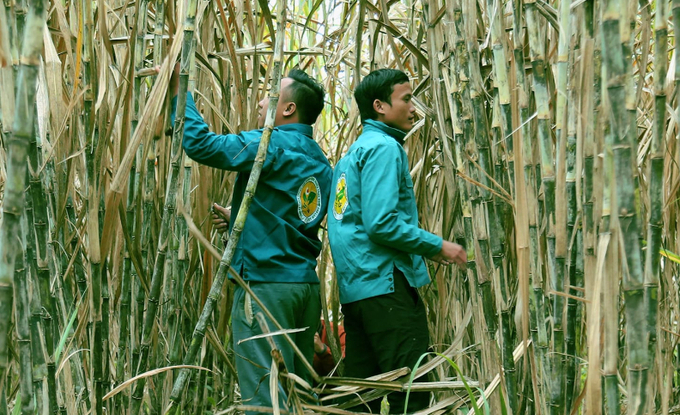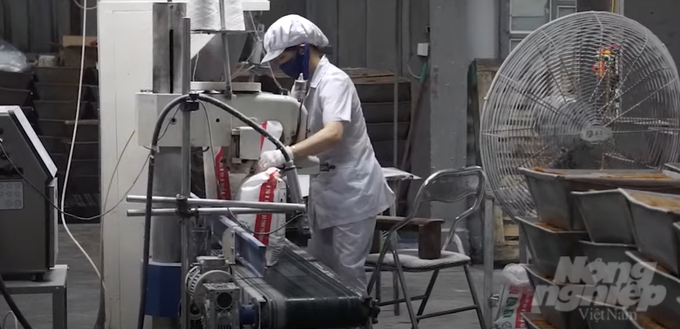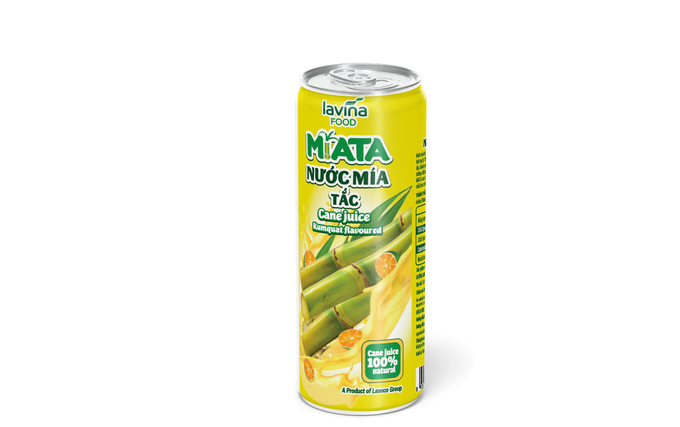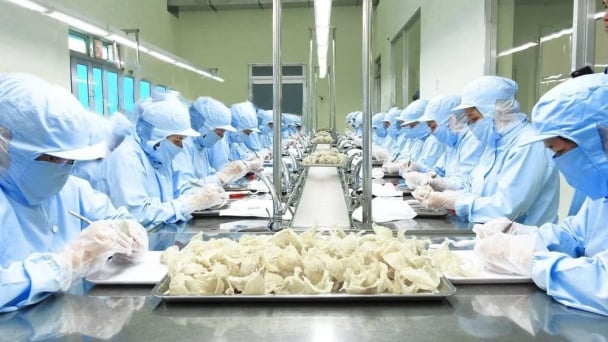May 15, 2025 | 11:33 GMT +7
May 15, 2025 | 11:33 GMT +7
Hotline: 0913.378.918
May 15, 2025 | 11:33 GMT +7
Hotline: 0913.378.918
Early on, Thanh Hoa Province formed a partnership with the Halal market, exporting a variety of processed products to countries in the Southeast Asian region. However, the export value of Thanh Hoa's Halal production is in the low millions of USD, with only seven enterprises certified to date. Among them, Lam Son Sugar Joint Stock Company (Lasuco) is recognized as a pioneer in pursuing, collaborating, and promoting sugarcane-based product exports to the Islamic market.

Lasuco has thousands of hectares of sugarcane in Thanh Hoa province. Photo: Lasuco.
The organization currently exports to numerous nations with substantial Muslim populations, including the United Arab Emirates (UAE), Saudi Arabia, Indonesia, Jordan, Lebanon, Malaysia, and Libya. From July 1, 2023, to June 30, 2024, the primary source of Lasuco's export revenue to the Halal market was the export of rock sugar, which amounted to USD 328,000. Furthermore, the company exported more than 115,000 cans of calamansi-flavored sugarcane juice to the UAE market in September and October 2024.
Mr. Le Van Quang, Deputy General Director of Lasuco, stated in a discussion regarding the decision to enter the Halal market, "The Islamic market is a global trend, with a growing demand for Halal products that accounts for approximately 23% of the global population. We regard this as a substantial opportunity to expand our market and boost revenue. In addition, Lasuco's leadership believes that the Halal market's continued expansion will result in Halal-certified products becoming increasingly competitive and popular among consumers".
Lasuco's leadership acknowledged that the company encountered numerous obstacles in the initial stages of entering the Islamic market, including price competition from industry competitors.
Many manufacturers have a lengthy history of presence in the Halal market, and they have developed robust brands and distribution networks that are extensive. This generates substantial price pressure, necessitating that we simultaneously optimize production costs while preserving the quality of our products.

Lasuco's product processing and packaging area. Photo: Quoc Toan.
Furthermore, the enhancement of product quality has been a significant undertaking. We have made significant investments in the modernization of our facilities and the establishment of a safe and efficient production process in order to comply with the rigorous Halal standards. This not only enhances our production capacity to satisfy delivery schedules for each order, but also assists in ensuring quality.
It is also a significant challenge to establish trust with consumers in a new market. Mr. Quang disclosed that the organization has been required to continuously demonstrate its dedication to Halal standards and the quality of its products by means of successful marketing campaigns and favorable customer feedback.
The province of Thanh Hoa currently has 535 OCOP (One Commune One Product) recognized products, which places it third in the nation in terms of the number of OCOP products. In 2023, the province's export turnover was USD 273 million, with 43 businesses that specialize in the export of agricultural and handmade products to 30 international markets.
Footwear, garments, sugar, clams, surimi, and vegetable oils are the primary products that are certified Halal for export and are manufactured in Thanh Hoa. Muslim-majority nations, including Malaysia, Indonesia, Brunei, and the Middle East, import these products. Nevertheless, the export volume remains relatively modest, and revenues are substantially lower than those from other markets.

Lasuco's beverage products are well received in the Muslim market. Photo: Lasuco.
Commercial clams, canned pineapples, cassava pieces, cinnamon, and natural honey are among the potential items that Thanh Hoa has yet to export to the Halal market, in addition to pharmaceuticals, cosmetics, and tourism services.
Mr. Dang Van Hiep, the Deputy Director of the Thanh Hoa Department of Agriculture and Rural Development, observed that Thanh Hoa's exports, which include agricultural products, have progressively gained market share in the Halal market. Nevertheless, the outcomes have not yet been in accordance with the potential and assets of the region.
Mr. Hiep emphasized an essential issue: "Thanh Hoa has not conducted a significant amount of trade with commercial organizations in the Halal market. Consequently, we have not conducted a comprehensive evaluation of our capabilities and assets to identify the province's products that are most advantageous for this market. Furthermore, the production scale of Thanh Hoa is restricted by its small-scale, fragmented nature, which presents a challenge in terms of generating large, consistent product volumes to guarantee a continuous supply."

Mr. Dang Van Hiep, the Deputy Director of the Thanh Hoa Department of Agriculture and Rural Development. Photo: Quoc Toan.
There are few robust agricultural businesses that are capable of managing production, establishing value chains, and engaging in export activities, which is why the role of enterprises in Thanh Hoa's export market remains small.
Thanh Hoa is actively collaborating with ministries, sectors, agencies, and businesses to encourage investment, trade, and Halal products and services, according to Mr. Hiep. The objective of this collaborative endeavor is to enhance the export value of the province's products in the Halal market by leveraging their potential.
Additionally, it is essential to consider the customs, traditions, spiritual factors, and specific consumption preferences of the Muslim community to develop products that comply with quality, labeling, and standardization requirements. "Thanh Hoa will be able to identify competitive products for trade promotion in this market by promoting bilateral diplomacy, bilateral exchanges, and two-way investment between the province and Halal market trade organizations," Mr. Hiep stated.
Translated by Linh Linh

(VAN) Japan's efforts to lower the price of rice through the release of its stockpile may finally be making some progress, albeit at a snail's pace.

(VAN) U.S. tariffs are not only a 'shock', but also an opportunity for Vietnamese businesses to renew their mindset toward comprehensive development.

(VAN) As Bac Giang lychee enters the harvest season, Minister Do Duc Duy expects that the fruit will contribute greatly to agricultural exports due to standardized production and deep processing.

(VAN) Consumers have shown a preference for free-range eggs, but those farming systems are more vulnerable to biosecurity risks like bird flu.
/2025/05/09/5701-1-184335_301.jpg)
(VAN) Vietnam’s eel exports nearly doubled thanks to a mud-free farming model, opening up new prospects while still facing numerous barriers related to international standards.

(VAN) Minister Do Duc Duy warned that if production is not professionalized and supply chains are not transparent, the U.S. market could become a growth bottleneck.

(VAN) Delegating surveillance responsibilities to local authorities is a cost-saving and efficiency-boosting measure that removes a key bottleneck for enterprises, according to Director General Duong Tat Thang.